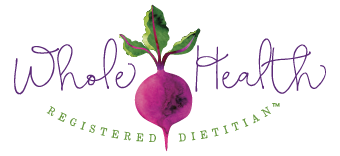When I was a health conscious teenager drinking skim milk, I remember I used to look at my grandmother drinking whole milk with a bit of self righteousness.
“Doesn’t she know any better?” I would wonder. “Whole milk is full of saturated fat and cholesterol!”
My, how times have changed! These days, I enjoy full-fat dairy, and I’m much more likely to tell my clients to drink whole milk, rather than skim or 1%. Especially my fertility clients!
Why the 180? Eating full-fat dairy fits into my “eat real food” philosophy. This philosophy has been cultivated year after year, the more I study food and nutrition. And it’s reinforced year after year, as new research emerges that shows the foods my grandmother ate may be healthiest for us after all. Butter and whole eggs have both seen a healthy renaissance recently. Now it looks like whole milk may see a similar revival.
Consider two recent studies that conclude the consumption of whole-fat dairy is associated with reduced body fat. In a study published last year in the Scandinavian Journal of Primary Health Care, middle-aged men who consumed high-fat milk, butter, and cream were significantly less likely to become obese over a period of 12 years compared with men who never or rarely ate high-fat dairy. (1)
In another paper, published last year in the European Journal of Nutrition, researchers reviewed 16 other studies and concluded that the evidence does not show that high-fat dairy foods contribute to obesity or heart disease. In most of the studies, high-fat dairy was actually associated with a lower risk of obesity! (2)
Moreover, full-fat dairy has been a recommendation for women trying to get pregnant since 2007, when research from the Nurses Health Study showed intake of high-fat dairy foods may decrease the risk of anovulatory infertility.
How can this be? Well, the fat in whole milk can curb appetite and slow the release of sugar into the bloodstream, reducing the amount that can be stored as fat. Also, fat-free dairy products can potentially disrupt hormone balance, an important factor in fertility and weight. The process of removing fat from whole milk removes estrogen and progesterone, which are bound to the fat. This leaves behind higher portions of androgens, insulin-like growth factor one (IGF-1), prolactin, and male hormones in the watery layer, therefore causing an imbalance. (3)
So does that mean you can go on an ice cream and cheese-eating bender? Not quite! It means you can stop feeling guilty if you keep whole milk in the house for the kids and you drink it too. It means you can enjoy the 2% Greek yogurt, instead of the 0%. It means cheddar and apples can be a balanced afternoon snack. Incorporate modest amounts, 1-2 servings, of full-fat dairy into your diet, even if you’re trying to lose weight. And let your grandmother tell you, “I told you so!”
1. http://www.ncbi.nlm.nih.gov/pubmed/23320900




